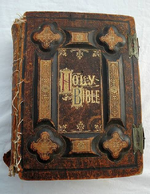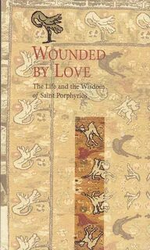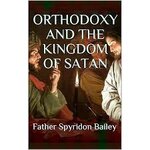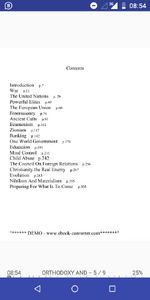I heard about the book Two Paths it apparently is very good Brother Augustine recommended it and Jay Dyer also lists it in his top Orthodox books to read I think they touch on the great schism its about Roman Catholisim and Orthodoxy, have you perhaps already read it?Does anyone have a recommendation for best book(s) on the Great Schism? I've read the first two books by John Strickland on Church history and they were quite good but also a bit focused on his pet theses rather than aiming to be comprehensive.
You are using an out of date browser. It may not display this or other websites correctly.
You should upgrade or use an alternative browser.
You should upgrade or use an alternative browser.
Orthodox books you have read or currently reading, reviews.
- Thread starter GoodShepherd
- Start date
Did anyone read "Our thoughts determine our lives" recently by the Serbian elder? I recall there being a post on it within the last few months, I think during Lent.
Never heard of it, but sounds goodDid anyone read "Our thoughts determine our lives" recently by the Serbian elder? I recall there being a post on it within the last few months, I think during Lent.
Yes, I've read it. I read it in Serbian many years ago never imagining it would be translated into English. Since then I've also read the English translation and its good quality. About a quarter of the book describes Elder Thaddeus's life and then the rest of the book is made up of short anecodotes and citations split into chapters, each of which revolves around a common theme (love, prayer, repentence, family life etc).Did anyone read "Our thoughts determine our lives" recently by the Serbian elder? I recall there being a post on it within the last few months, I think during Lent.
Its a great book. The first section is a biography of the elder and the second is a collection of his teachings. Both are golden IMO. The latter section is one of those books where you can open it and read whatever you first cast your eyes upon and it will give you something to chew on for the day.Did anyone read "Our thoughts determine our lives" recently by the Serbian elder? I recall there being a post on it within the last few months, I think during Lent.
My priest lent me this book to read last year part of my catechism, its quite a big book +500 pages its all about mount Athos and the monks who have lived there and their stories, sayings and wisdom for various topics, it really gave me a feel for what the monastic life must be like, at times it was also a heavy book there were some troubling and very incredible stories in it. There was also an interesting 600 year old prophesy in it about the last days but I forgot to take a photo of it before I returned the book, it said the last days would start in the 1900's and how during this century the world would become unrecognizable, that men would be travelling in the sky like birds and under the earth too and being able to speak to each other all over the world in an instant, also mentioned that we wouldnt be able to tell the difference between men and woman because of their shameful way of dressing and their hairstyles.
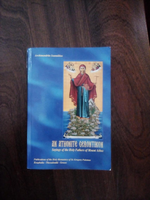

The church of Saint Raphael book was also a very interesting book, I returned the original book to my priest so the one I shared here is not the exact title, he is one of the newest canonized saints, what was interesting is how he was actually canonized, this saint died centuries ago and how they discovered him in modern times was when construction workers found his body and they smelt a beautiful fragrance, theu couldnt pick up his body and relics and the one guy got fed up and kicked it and went paralized on the spot, this saint had also been appearing to various people in this area even the turks, he revealed where his daughters body was buried and his deacon and how they werw killed, the dates, the details etc and an entire church was built in his honor and he has appeared to many people and healed them, when this saint and his daughter were being tortured by the turks his deacon died just from witnessing the event
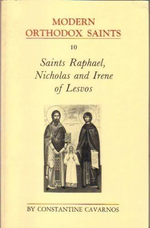
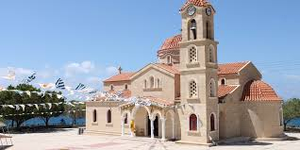


I’m currently reading Life After Death According to Orthodox Tradition by Jean Claude Larchet. I recommend it to those who perhaps wish to reignite their zeal and also for those for whom the Tollhouses can stoke fear or despair. It’s an evenhanded explanation which can be a little more palatable than some. It also draws parallels between Church tradition and secular accounts of clinical death or near-death experience and it’s a good accompaniment to Fr Seraphim’s The Soul After Death.
I have also read the lives of Matrona of Moscow, Seraphim of Vyritska and St Alexander of Svir. For those learning Russian, you can download the LitRes app, purchase cheap lives of Saints and export the file to an e-reader or to your computer with ease. The language is often very simple and you can read in tandem with a Russian dictionary
I have also read the lives of Matrona of Moscow, Seraphim of Vyritska and St Alexander of Svir. For those learning Russian, you can download the LitRes app, purchase cheap lives of Saints and export the file to an e-reader or to your computer with ease. The language is often very simple and you can read in tandem with a Russian dictionary
These after death accounts are so important especially to those who think there isnt life after death, there is so much evidence that life after death is a reality, I would like to read this book you recommending too.I’m currently reading Life After Death According to Orthodox Tradition by Jean Claude Larchet. I recommend it to those who perhaps wish to reignite their zeal and also for those for whom the Tollhouses can stoke fear or despair. It’s an evenhanded explanation which can be a little more palatable than some. It also draws parallels between Church tradition and secular accounts of clinical death or near-death experience and it’s a good accompaniment to Fr Seraphim’s The Soul After Death.
I have also read the lives of Matrona of Moscow, Seraphim of Vyritska and St Alexander of Svir. For those learning Russian, you can download the LitRes app, purchase cheap lives of Saints and export the file to an e-reader or to your computer with ease. The language is often very simple and you can read in tandem with a Russian dictionary
Does anyone have a recommendation for best book(s) on the Great Schism? I've read the first two books by John Strickland on Church history and they were quite good but also a bit focused on his pet theses rather than aiming to be comprehensive.
Two Paths, for sure.
Also, Orthodox Veneration of Mother of God, previously mentioned in this thread, is a good refutation of modernized Latin theology through this specific topic.
Russia's Catacomb Saints. A great book about how to live an Orthodox life during difficult times, which is said (in Father Seraphim's Life and Works) to be increasingly relevant in our crazy modern world.
This book was recommended to me by my priest, I had some experience as a protestant while praying in tongues in private where I would get this peace, warmth and heat come over me while praying and my lips would feel very light, this didnt happen often maybe once or twice a year and happened maybe about +-7 times in my life.
This book explains that this feeling it a natural feeling when we are really focused in prayer, its not the grace of God, its just the beginning and will increase to much greater heights, unfortunately I fell into pride during this experience so as the book explains you wont go past this stage and the grace of God doesnt come when we are in pride.
You cant read through this book fast its a slow read, Im almost done the book but its a must read book for serious Orthodox Christians who would like to increase their prayer life, specifically the Jesus prayer. Here is a small quote from the book.
"No one has power to command the heart. It lives its own special life. It rejoices of itself, it is sad of itself; and no one can do anything about this. Only the Master of all, holding all in His right hand, has power to enter the heart, to put feelings into it independently of its naturally changing currents." -Theophan the Recluse-
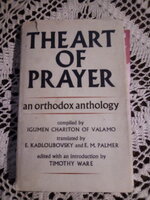
This book explains that this feeling it a natural feeling when we are really focused in prayer, its not the grace of God, its just the beginning and will increase to much greater heights, unfortunately I fell into pride during this experience so as the book explains you wont go past this stage and the grace of God doesnt come when we are in pride.
You cant read through this book fast its a slow read, Im almost done the book but its a must read book for serious Orthodox Christians who would like to increase their prayer life, specifically the Jesus prayer. Here is a small quote from the book.
"No one has power to command the heart. It lives its own special life. It rejoices of itself, it is sad of itself; and no one can do anything about this. Only the Master of all, holding all in His right hand, has power to enter the heart, to put feelings into it independently of its naturally changing currents." -Theophan the Recluse-

Fr Spyridon is based afOrthodoxy and the kingdom of satan, check out the book contents to see the topics discussed in this book.
I recently read “Remember Thy First Love” by Archimandrite Zacharias (link). I cannot recommend it enough. Every sentence inspired me. The book talks about the three stages of spiritual growth. It was a Godsend for me and gave me clarity on what to expect in my spiritual struggles. It also gave clarity as to why God pulls back His Grace as we grow.
Some of my favorite quotes:
Page 42
God waits tirelessly for man, knocking at the door of his heart. 'Behold, I stand at the door, and knock: if any man hear my voice, and open the door, I will come in to him, and will sup with him, and he with me." Thus, as soon as man shows the slightest disposition of humility and gratitude, God enters his soul, graciously visiting him, renewing and regenerating his life, and granting him a new spiritual birth.
Page 128
God has implanted within our being the possibility of repentance, so that we can turn to Him and ask for His forgiveness at any time of our life. Indeed, God bestows great honour upon the man who 'comes to himself", who examines his heart and then speaks with God responsibly, that is, in the truth of repentance. The Lord then pours out the refreshing waters of His mercy upon him. Having created man after His likeness, God has implanted in his nature the desire for divine sonship, as He responds with these blessed and saving words: 'All that I have is thine." That is to say, 'The fulness of my life, O man, is now your life. What God is by nature, He bestows on man; and man is made a god by grace.
Page 179
Another valuable consequence of the withdrawal of grace is the preparation of the mind for the grace of theology. For as long as man seeks God lawfully, the life of Christ Himself will be repeated in him. And what is theology other than 'to know Christ, and Him crucified'?
Page 234
The Christian is not a lover of honour. He has no luciferic ambition to rise to the highest rank. We aim to journey downwards, humbling ourselves one before the other after the manner of Christ Who 'came not to be ministered unto, but to minister, and to give his life a ransom for many.'
Some of my favorite quotes:
Page 42
God waits tirelessly for man, knocking at the door of his heart. 'Behold, I stand at the door, and knock: if any man hear my voice, and open the door, I will come in to him, and will sup with him, and he with me." Thus, as soon as man shows the slightest disposition of humility and gratitude, God enters his soul, graciously visiting him, renewing and regenerating his life, and granting him a new spiritual birth.
Page 128
God has implanted within our being the possibility of repentance, so that we can turn to Him and ask for His forgiveness at any time of our life. Indeed, God bestows great honour upon the man who 'comes to himself", who examines his heart and then speaks with God responsibly, that is, in the truth of repentance. The Lord then pours out the refreshing waters of His mercy upon him. Having created man after His likeness, God has implanted in his nature the desire for divine sonship, as He responds with these blessed and saving words: 'All that I have is thine." That is to say, 'The fulness of my life, O man, is now your life. What God is by nature, He bestows on man; and man is made a god by grace.
Page 179
Another valuable consequence of the withdrawal of grace is the preparation of the mind for the grace of theology. For as long as man seeks God lawfully, the life of Christ Himself will be repeated in him. And what is theology other than 'to know Christ, and Him crucified'?
Page 234
The Christian is not a lover of honour. He has no luciferic ambition to rise to the highest rank. We aim to journey downwards, humbling ourselves one before the other after the manner of Christ Who 'came not to be ministered unto, but to minister, and to give his life a ransom for many.'
What do you make of this? I don't follow, or it lacks a bit of context. I see you referred to it in part before you quoted Archimandrite Zacharias.Another valuable consequence of the withdrawal of grace is the preparation of the mind for the grace of theology.
There.It also gave clarity as to why God pulls back His Grace as we grow.
I spoke with my Spiritual Father about this topic recently. He told me that this withdrawal of grace is necessary for our growth. We need to struggle and suffer to see that God is our only hope. It builds humility which then attracts the Grace of the Holy Spirit. My spiritual Father said that even when this Grace is withdrawn we can be assured God is even more present. He gave the analogy of a child learning to walk. We have to let the child fall on his own but we’re there all the same to save them from serious trouble.What do you make of this? I don't follow, or it lacks a bit of context. I see you referred to it in part before you quoted Archimandrite Zacharias.
There.
Im just over half way in this book, superb! I didnt know how bad the atheist communism was against the church in Russia, they basically tried to genocide the church, according to this book over 40,000 priest and over 100,000 nuns and monks were killed, thats huge!
The story of Father Arseny is amazing, he was sent to the death camps in Siberia where prisioners are sent to basically be worked to death under harsh and cruel conditions with beatings and torture, the faith, good deeds and kindness he showed EVERYONE in these camps and how many people he saved and reignited their faith is amazing, while prisioners were exhausted, frozen and in bed sleeping at night, father Arseny is standing next to his bed and praying and even helping people at night, almost everyday someone died.
The book was composed by many eye witnesses and prisioners who survived and also some of the notes and letters father Arseny wrote and collected.
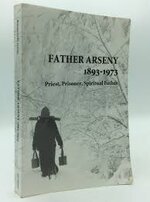
The story of Father Arseny is amazing, he was sent to the death camps in Siberia where prisioners are sent to basically be worked to death under harsh and cruel conditions with beatings and torture, the faith, good deeds and kindness he showed EVERYONE in these camps and how many people he saved and reignited their faith is amazing, while prisioners were exhausted, frozen and in bed sleeping at night, father Arseny is standing next to his bed and praying and even helping people at night, almost everyday someone died.
The book was composed by many eye witnesses and prisioners who survived and also some of the notes and letters father Arseny wrote and collected.


